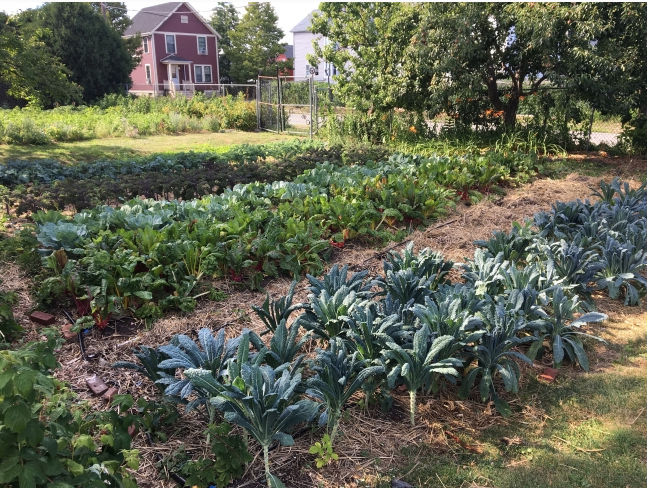Reed to Discuss EAT Local Foods Act with RI Farmers & Community Partners

PROVIDENCE, RI – A new federal bill could help local farmers and vulnerable communities. U.S. Senator Jack Reed is teaming up with Farm Fresh Rhode Island, the Rhode Island Food Policy Council (RIFPC), and Southside Community Land Trust (SCLT) on the Expanding Access To (EAT) Local Foods Act. The EAT Local Foods Act would help farmers and growers reach new markets and catalyze business growth while increasing access to locally-grown, nutritious food in underserved communities.
The bill seeks to build on a successful federal program – the Local Food Purchase Cooperative Agreement Program (LFPA) – with the goal of promoting economic opportunities for farmers, fishermen, and food producers and strengthening the nation’s food supply chain network.
On Monday, June 17 at 10:30 a.m., Senator Reed will join with RIFPC, Farm Fresh RI, and Southside Community Land Trust (SCLT) at City Farm – Rhode Island’s oldest urban farm – to talk about the Expanding Access To (EAT) Local Foods Act (S.3982), which was introduced by Senator Reed earlier this year.
The EAT Local Foods Act would create a permanent grant program for state and tribal governments to procure local foods for distribution to nearby hunger relief programs. It would leverage government procurement and purchasing power to increase access to locally-sourced, fresh, healthy, and nutritious food in underserved communities and help family farmers, fishermen, and local food producers grow their markets. This grant program would in turn:
Support local economic development by creating new access to the hunger relief market for local farmers and fishermen. This, in turn, will establish a new, reliable stream of orders for small, beginning, and underserved farmers, ranchers, and fishers, giving these businesses the financial security to invest and further expand.
Strengthen our domestic agriculture supply chain by investing in local food distribution. The bill would help build local businesses that support durable and resilient local food systems.
Combat food insecurity by providing fresh, nutritious, local food to underserved communities, feeding more families and helping ease the strain on the hunger relief system.
The measure is cosponsored by more than a dozen U.S. Senators, including: Sherrod Brown (D-OH), Cory Booker (D-NJ), Ron Wyden (D-OR), Laphonza R. Butler (D-CA), Sheldon Whitehouse (D-RI), Angus King (I-ME), Richard Blumenthal (D-CT), Tina Smith (D-MN), Jeanne Shaheen (D-NH), Elizabeth Warren (D-MA), John Fetterman (D-PA), Peter Welch (D-VT), Ben Ray Lujan (D-NM), and Martin Heinrich (D-NM).
During the COVID pandemic, Congress made $900 million available for U.S. Department of Agriculture (USDA) food purchasing efforts through the LFPA. This program has helped strengthen local and regional food systems, improved agricultural supply-chain resiliency, and supported underserved producers and communities. Using LFPA funds, states set up approved programs to purchase food produced within the state or within 400 miles of delivery destination, which was then distributed through food banks, pantries, and other food distribution centers where hungry families in need can receive food.
In Rhode Island, the Rhode Island Department of Environmental Management (DEM), working with nonprofits like Farm Fresh RI and SCLT, was awarded a total of $1.78 million to purchase local foods for distribution within the state. To date, DEM, Farm Fresh, and their partners, have purchased food from 95 local producers and distributed that nutritious, local food to over 65,000 Rhode Islanders.
The LFPA is scheduled to sunset once the $900 million in one-time funds are expended. The EAT Local Foods Act would codify the program into law, providing permanent funding to ensure the program continues.
The EAT Local Foods Act is supported by a wide range of farmers, food hubs, coalitions, and business networks from across the country, including the National Sustainable Agriculture Coalition, the National Center for Frontier Communities, the Wallace Center at Winrock International, and more.
In Rhode Island, the bill is supported by several leading organizations, including: the Rhode Island Community Food Bank, Farm Fresh Rhode Island, the Commercial Fisheries Center of Rhode Island, the Rhode Island Food Policy Council, and Southside Community Land Trust.